What kind of fish can I keep in a water fountain?
The type of fish that can be kept in a water fountain will depend on the size and depth of the feature, as well as the climate in your area. Some common fish that are well-suited for water fountains include koi, goldfish, and mosquito fish. It's important to research the specific needs and requirements of any fish species you plan to keep in your water fountain.
Can a water fountain be used to reduce noise pollution in my outdoor space?
Yes, the sound of running water from a water fountain can be an effective way to mask unwanted noise in your outdoor living area. Features like fountains or waterfalls can be especially effective at creating a peaceful, relaxing atmosphere and reducing noise pollution.
What kind of lighting is best for a water fountain?
The type of lighting that is best for a water fountain will depend on the specific type of feature and its location. LED lights are a popular choice for water fountains because they are energy-efficient and long-lasting. Underwater lights can be used to highlight the movement and texture of the water, while landscape lighting can be used to create a dramatic effect after dark.
Can a water fountain be used to attract wildlife to my outdoor space?
Yes, a water fountain can be a great way to attract wildlife like birds and butterflies to your outdoor living area. Adding native plants and other natural features can help create a welcoming environment for wildlife. However, it's important to be aware of any potential risks or issues that may arise from attracting wildlife to your property.
What kind of maintenance is required for a water fountain?
The maintenance required for a water fountain will depend on the specific type of feature and its components. Some common maintenance tasks may include cleaning the water fountain, replacing or repairing pumps or filters, adjusting water chemistry, and winterizing the feature in colder climates.
Can a water fountain be installed in a small space?
Yes, there are many water fountain options available that can be installed in small spaces, such as tabletop fountains, wall-mounted fountains, and small pondless waterfalls. It's important to consider the size and style of your space when choosing a water fountain.
How much does it cost to install a water fountain?
The cost of installing a water fountain can vary widely depending on the type of feature, the size, the materials used, and the complexity of the installation. Simple tabletop fountains or DIY installations may cost as little as a few hundred dollars, while more elaborate installations such as ponds or waterfalls can cost several thousand dollars or more.
How do I choose the right location for my water fountain?
When choosing a location for your water fountain, it's important to consider factors such as sunlight, visibility, and access to power and water sources. It's also important to choose a location that will complement the overall aesthetic of your outdoor living space.
What are some common design elements for water fountains?
Water fountains can be designed in a wide range of styles, from traditional to modern and everything in between. Some common design elements may include the use of natural materials like stone or wood, the incorporation of lighting, and the addition of plants or other landscaping features.
Can a water fountain increase the value of my home?
Yes, a well-designed and maintained water fountain can add value to your home and increase its curb appeal. A water fountain can create a beautiful and relaxing outdoor living space, which can be a major selling point for potential buyers.
How often should I clean my water fountain?
The frequency of cleaning your water fountain will depend on several factors, including the size of the feature, the materials used, and the local climate. As a general rule, it's recommended to clean your water fountain at least once a year, or more frequently if you notice algae growth or other issues.
Can I add fish to my water fountain?
Yes, fish can be a beautiful and lively addition to a water fountain, but it's important to choose the right type of fish and provide the appropriate environment. It's recommended to consult with a professional to ensure that the water chemistry and other factors are properly balanced for fish.
How do I troubleshoot common water fountain problems?
Some common issues with water fountains can include leaks, pump malfunctions, and algae growth. To troubleshoot these problems, it's important to first identify the root cause and then take appropriate steps to address the issue. This may involve repairing or replacing components, adjusting water chemistry, or adding additional filtration or lighting.
How do I choose the right water fountain for my outdoor living space?
When choosing a water fountain, it's important to consider the size and style of your outdoor living space, your budget, and your personal preferences. There are a wide range of water fountain options available, from simple tabletop fountains to elaborate waterfalls and ponds. Consulting with a professional can also help you choose the best option for your specific needs.
Can I add lighting to my water fountain?
Yes, lighting can be added to water fountains to enhance their visual appeal and create a beautiful focal point in your outdoor living space. There are a variety of lighting options available, including underwater lights and landscape lighting that can highlight the feature from different angles.
How much does it cost to install a water fountain?
The cost of installing a water fountain will depend on several factors, including the size and complexity of the feature, the materials used, and the local labor and materials costs. It's best to consult with a professional to get an estimate for your specific project.
What types of water fountains are best for small spaces?
If you have a small outdoor living area, there are still several water fountain options that can work well in limited space. For example, a wall-mounted fountain or a small tabletop fountain can provide a soothing and attractive visual element without taking up too much room.
How do I winterize my water fountain?
If you live in a region with freezing temperatures, it's important to properly winterize your water fountain to prevent damage from ice and snow. This may include draining the feature, removing the pump and filter, and covering any exposed parts to protect them from the elements.
Are there any safety concerns with water fountains?
Water fountains can be safe when properly installed and maintained, but there are some important safety considerations to keep in mind. For example, it's important to keep children and pets away from the feature and to ensure that any electrical components are properly installed and grounded to prevent electrical shock. Additionally, it's important to regularly test the water chemistry and maintain proper water levels to prevent the growth of harmful bacteria or algae.
Do water fountains require a lot of maintenance?
Water fountains do require regular maintenance to keep them functioning properly and looking their best. This may include cleaning the feature, checking the water levels and chemistry, and maintaining the pump and filter system. The specific maintenance requirements will depend on the type of feature you choose and the specific conditions in your environment.
How do I choose the right location for my water fountain?
Choosing the right location for your water fountain is important for both aesthetics and function. Consider factors like the amount of sunlight the area receives, the proximity to power and water sources, and the visibility from your home and outdoor living areas. Additionally, consider any local regulations or permits that may be required for installation.
Can I add fish or other aquatic animals to my water fountain?
Yes, fish and other aquatic animals can be added to certain types of water fountains, like ponds or water gardens. It's important to choose fish and other animals that are appropriate for the size and type of feature you have and to provide appropriate habitat and nutrition for them. Additionally, consider any local regulations or permits that may be required for adding fish or other animals to your feature.
How do I troubleshoot issues with my water fountain?
If you're experiencing issues with your water fountain, there are several common troubleshooting steps you can take. This may include checking the water levels and chemistry, inspecting the pump and filter system, and clearing any debris from the feature. If you're unable to resolve the issue on your own, it may be necessary to consult with a professional.
Can water fountains increase the value of my home?
Water fountains can be a valuable addition to your home, particularly if they're well-designed and well-maintained. A high-quality water fountain can add a unique and appealing element to your outdoor living areas, which can increase the overall value and appeal of your home. Additionally, features like ponds or water gardens can provide a natural habitat for local wildlife, which can be an added benefit for nature lovers.
Do water fountains attract insects and pests?
Water fountains can attract insects and pests, but proper maintenance can help to minimize this issue. Regular cleaning and maintenance, such as removing debris and treating for algae, can help to keep insects and pests at bay. Additionally, using natural remedies like fish or plants can help to balance the ecosystem and reduce the attraction of insects and pests.
How do I choose the right water fountain for my space?
Choosing the right water fountain for your space will depend on several factors, including the size of your space, your budget, and your personal style preferences. It's important to consider the scale and proportion of the feature to ensure that it fits well with your space. Additionally, consider the maintenance and upkeep requirements for the feature and choose a design that fits with your lifestyle and budget.
How do I maintain my water fountain?
Regular maintenance is important for the health and longevity of your water fountain. This may include cleaning the feature, balancing the water chemistry, and ensuring proper water flow. It's important to follow the manufacturer's instructions for maintenance and consult with a professional if needed.
Can water fountains be customized to fit my style preferences?
Yes, there are many different styles of water fountains that can be customized to fit your personal style preferences. From contemporary designs to more traditional options, there are a wide range of features available to choose from. Additionally, features can be customized with different materials, colors, and lighting options to create a unique and personalized look.
How do I install a water fountain?
Installing a water fountain can be a complex process, and it's important to consult with a professional if needed. The steps for installation will depend on the type of feature you choose and the specific requirements of your space. It's important to follow the manufacturer's instructions and consult with a professional to ensure that the feature is installed safely and correctly.
Do water fountains require a lot of water?
Water fountains can be designed to be water-efficient, but it depends on the type of feature you choose. Fountains and smaller water fountains use less water than ponds or larger waterfalls. It's important to choose a feature that fits with your water usage needs and consider installing a recirculation system to minimize water waste.
Can water fountains be used indoors?
Yes, water fountains can be used indoors, but it's important to choose a feature that is designed for indoor use. Fountains or tabletop water fountains can add a peaceful element to indoor spaces, but larger water fountains like indoor ponds or waterfalls may require professional installation to ensure proper installation and maintenance.
How do I winterize my outdoor water fountain?
Winterizing your outdoor water fountain is important to protect it from damage during the colder months. The steps to winterize your feature will depend on the type of feature you have. Ponds may need to be drained, while fountains or other water fountains may need to be covered or stored in a sheltered area. It's important to follow the manufacturer's instructions for winterization and consult with a professional if needed.
Can water fountains help improve air quality?
Water fountains can help improve air quality by adding moisture to the air and reducing dust particles. Fountains or other features that use water to create mist or humidity can help to soothe dry skin and respiratory issues. Additionally, the sound of flowing water can have a calming effect on the mind and body.
Can I install a water fountain if I have a small yard or limited space?
Yes, there are many water fountains that are designed for small yards or limited spaces. Wall-mounted fountains or tabletop water fountains can add a calming element to small spaces, while smaller ponds or waterfalls can be designed to fit in a compact area. It's important to consider the scale and proportion of the water fountain to ensure that it fits well with your space.
How much does it cost to install a water fountain?
The cost of a water fountain will depend on the type of feature you choose, the size, and the complexity of the installation. Simple fountains or bird baths can be relatively inexpensive, while larger water fountains, like ponds or waterfalls, can be more costly. It's important to research your options and get quotes from professional installers to determine the cost for your specific project.
How do I choose the right size water fountain for my space?
The size of your water fountain should be proportional to the size of your space. A small fountain or bird bath can be a great addition to a small patio or balcony, while a larger water fountain like a pond or waterfall can be a focal point in a larger outdoor area. Consider the scale of your space and choose a water fountain that fits well with the overall design.
Can I add fish to my water fountain?
Fish can be a great addition to a water fountain, but it's important to choose the right type of fish for your specific feature. Koi and goldfish are popular choices for ponds, while smaller fish like guppies or minnows can be added to fountains or smaller water fountains. It's important to research the care and maintenance requirements for fish and ensure that your water fountain is properly equipped to support aquatic life.
What kind of lighting should I use with my water fountain?
Lighting can add an extra element of beauty to your water fountain, especially at night. LED lights are a popular choice for water fountains, as they are energy-efficient and come in a variety of colors. Underwater lighting can also highlight the movement of the water and create a peaceful atmosphere. It's important to choose lighting that is rated for outdoor use and consult with a professional electrician to ensure proper installation.
Can I customize my water fountain?
Many water fountains can be customized to fit your specific design and aesthetic preferences. Waterfalls can be designed to mimic natural rock formations, while fountains can be customized with unique sculptures or decorative elements. Working with a professional designer or installer can help you create a water fountain that is both functional and beautiful.
Are water fountains difficult to maintain?
The maintenance required for a water fountain will depend on the type of feature you choose. Some water fountains, such as fountains, require minimal maintenance, while others, like ponds, require more upkeep. It's important to follow the manufacturer's instructions for maintenance to keep your water fountain in good condition.
Can water fountains attract mosquitoes?
Water fountains that have standing water, like ponds or bird baths, can attract mosquitoes if not properly maintained. You can prevent mosquito infestations by keeping your water fountain clean and adding mosquito dunks, which are environmentally safe products that kill mosquito larvae
How can I ensure my water fountain is safe for pets?
When choosing a water fountain, consider the safety of your pets. A small fountain or bird bath is usually safe, but larger water fountains, like ponds or waterfalls, can pose a danger to pets. Make sure the water fountain is secure and that your pets cannot access it unsupervised.
Can I install a water fountain myself?
Installing a water fountain can be a DIY project, but it depends on the type of feature you choose. Simple fountains or bird baths can be installed with minimal effort, while larger water fountains, like ponds or waterfalls, may require professional installation to ensure proper installation and functionality.
Do water fountains increase the value of my home?
Water fountains can add value to your home, especially if they are well-designed and installed. A beautiful water fountain can enhance your home's curb appeal and create a relaxing and inviting atmosphere, making it an attractive feature for potential buyers.
We hope these frequently asked questions have been helpful in providing you with the information you need to choose the right water fountain for your space.
How do I clean my water fountain?
The process for cleaning a water fountain will depend on the type of feature you have. However, in general, you need to remove any debris from the water, clean the pump and filter, and scrub the walls and floor of the feature. Regular cleaning will help to prevent the growth of algae and bacteria in the water.
How do I prevent algae growth in my water fountain?
To prevent algae growth in your water fountain, you need to limit the amount of sunlight the water is exposed to, keep the water moving with a pump or fountain, and avoid overfeeding fish if you have them in the water. You can also use algae treatment products, but it is important to use them correctly and follow the instructions on the label.
Can I use chemicals in my water fountain to kill algae or bacteria?
Yes, there are chemicals that can be used to control algae or bacteria growth in a water fountain. However, it's important to be cautious when using chemicals in any aquatic environment as they can harm fish and other wildlife living in the water.
What chemicals can I use to control algae or bacteria in my water fountain?
There are a variety of chemicals available for use in water fountains, such as copper sulfate, algaecides, and chlorine. However, it's important to use the appropriate chemical for the specific type of algae or bacteria you're dealing with, and to follow the manufacturer's instructions carefully.
Can I use bleach to control algae or bacteria in my water fountain?
No, bleach is not recommended for use in water fountains as it can harm fish and other wildlife. It can also disrupt the natural balance of the ecosystem and cause long-term harm.
Will using chemicals solve the problem of algae or bacteria in my water fountain permanently?
No, using chemicals is often a short-term solution and doesn't address the underlying causes of algae or bacteria growth. Regular maintenance of your water fountain, such as removing debris and maintaining proper water flow, can help prevent algae and bacteria growth in the first place.
Are there natural alternatives to using chemicals to control algae or bacteria in my water fountain?
Yes, there are natural alternatives to chemical treatment, such as adding beneficial bacteria to the water, using UV light, or adding plants to help absorb excess nutrients. These methods can be effective, but may take longer to see results compared to using chemicals.
What is a solar water fountain?
A solar water fountain is a type of water fountain that is powered by solar energy. It typically consists of a fountain, waterfall, or pond that is powered by a solar panel, which converts sunlight into electricity.
How does a solar water fountain work?
A solar water fountain works by harnessing the energy of the sun to power a pump or other water fountain. A solar panel is typically connected to a battery or controller, which stores energy during the day and releases it to power the water fountain at night or during cloudy weather.
What are the benefits of a solar water fountain?
Solar water fountains are eco-friendly, cost-effective, and easy to install. They do not require electricity from the grid, which can save you money on your energy bill. They also do not emit any greenhouse gases or pollutants, making them a sustainable and environmentally-friendly option.
What types of solar water fountains are available?
Solar water fountains come in a variety of types, such as fountains, waterfalls, and ponds. They can be made of different materials, such as stone, ceramic, or resin, and come in various sizes and styles to fit any outdoor space.
How do I install a solar water fountain?
Installing a solar water fountain typically involves placing the solar panel in a location that receives ample sunlight, such as on a roof or on the ground. The water fountain is then connected to the solar panel, either directly or through a battery or controller. Installation instructions vary by product, so be sure to follow the manufacturer's instructions carefully.
Do solar water fountains require maintenance?
Yes, solar water fountains require regular maintenance, such as cleaning the water fountain and the solar panel, checking the pump for debris, and ensuring that the battery or controller is functioning properly. Be sure to consult the manufacturer's instructions for specific maintenance requirements.
Why do I need a pump for my water fountain?
A pump is necessary for circulating and moving water in a water fountain, such as a fountain, waterfall, or pond. It helps to maintain the health of the water and creates the desired aesthetic effect.
How do I choose the right pump for my water fountain?
To choose the right pump for your water fountain, consider the size of the water fountain, the desired flow rate, and the head height (the height the water needs to be lifted to reach the top of the feature). You may also want to consider the power source, noise level, and any additional features or accessories you need.
What is flow rate and how do I determine the right flow rate for my water fountain?
Flow rate is the amount of water that the pump can circulate per hour, typically measured in gallons per hour (GPH). To determine the right flow rate for your water fountain, consider the size of the feature and the desired effect. For example, a small fountain may require a flow rate of 50-100 GPH, while a larger pond may require a flow rate of 1,000 GPH or more.
What is head height and how do I determine the right head height for my water fountain?
Head height is the vertical distance that the water needs to be lifted to reach the top of the water fountain. To determine the right head height for your water fountain, measure the vertical distance from the water level in the feature to the highest point of the feature. Choose a pump that can lift water to that height and still maintain the desired flow rate.
What types of pumps are available for water fountains?
There are several types of pumps available for water fountains, such as submersible pumps, external pumps, and solar pumps. Submersible pumps are designed to be submerged in the water and are typically used in smaller water fountains, while external pumps are located outside of the water and are typically used in larger features. Solar pumps are powered by solar energy and are an eco-friendly option.
Do pumps require maintenance?
A: Yes, pumps require regular maintenance, such as cleaning the impeller and pump housing, checking for clogs or debris, and ensuring that the pump is functioning properly. Be sure to consult the manufacturer's instructions for specific maintenance requirements.
Related Articles
Water fountain Design Ideas for 2023
Winterizing Outdoor Water Fountains: A Complete Guide
Water Feature Maintenance: A Comprehensive Guide


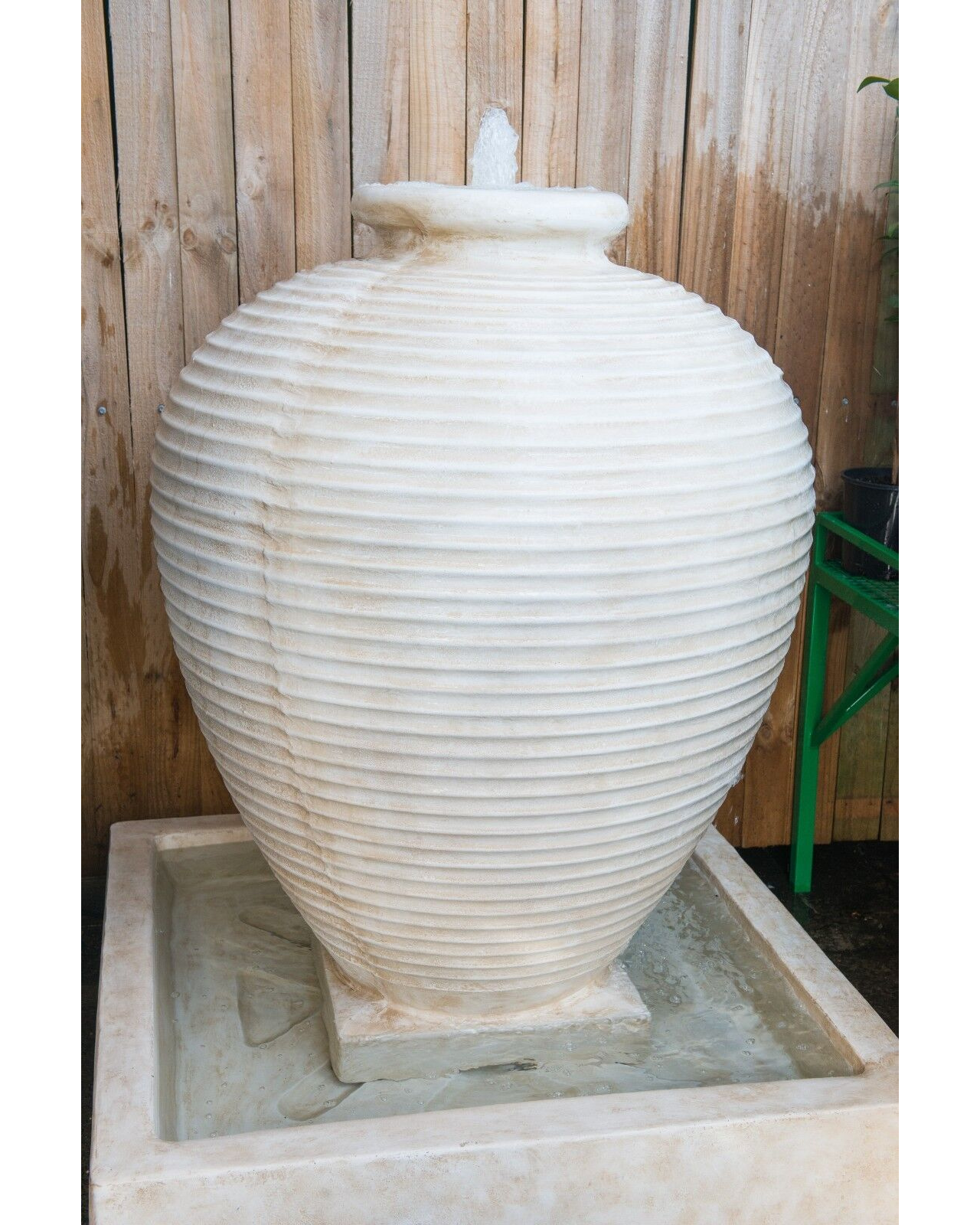

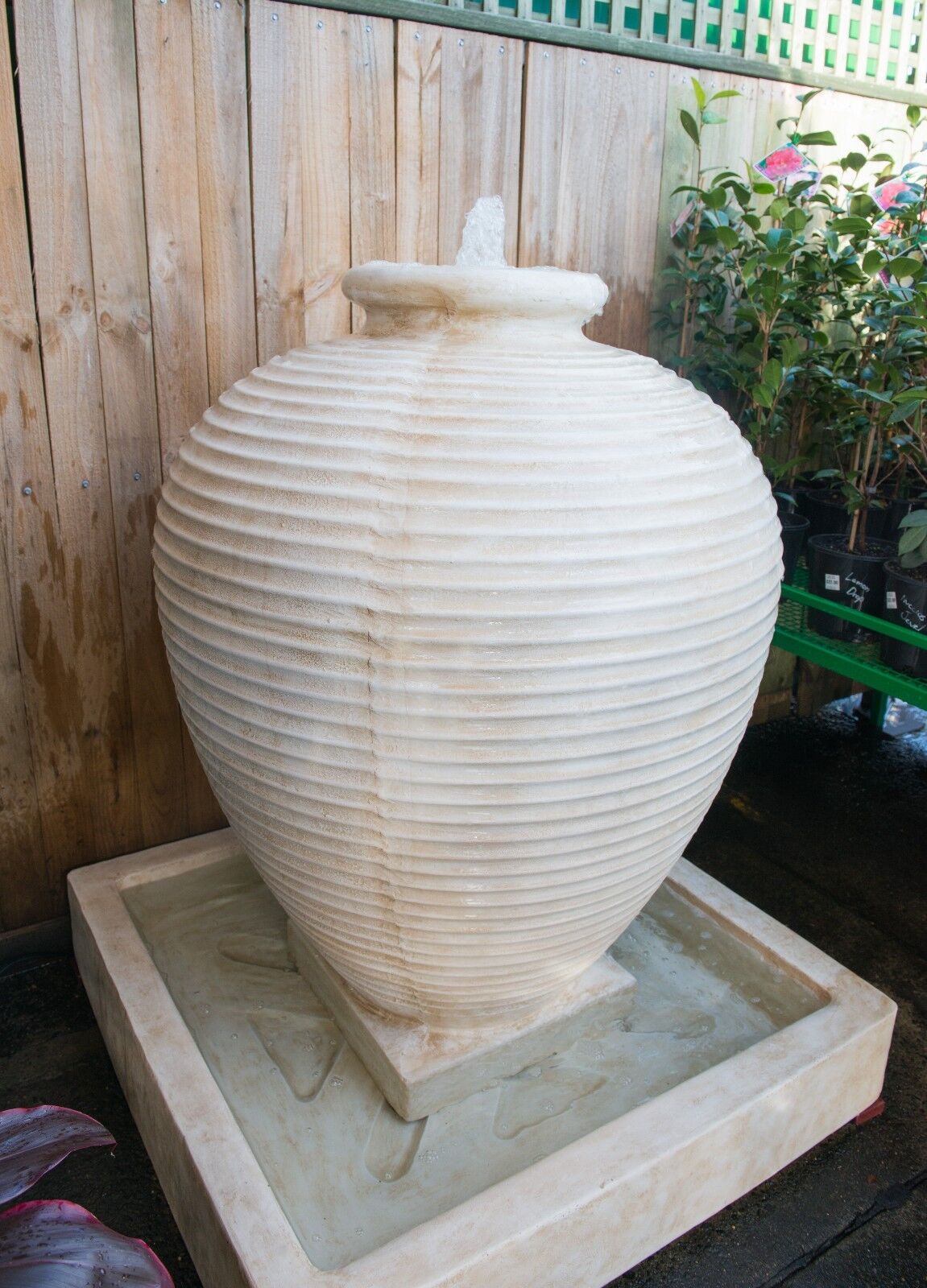
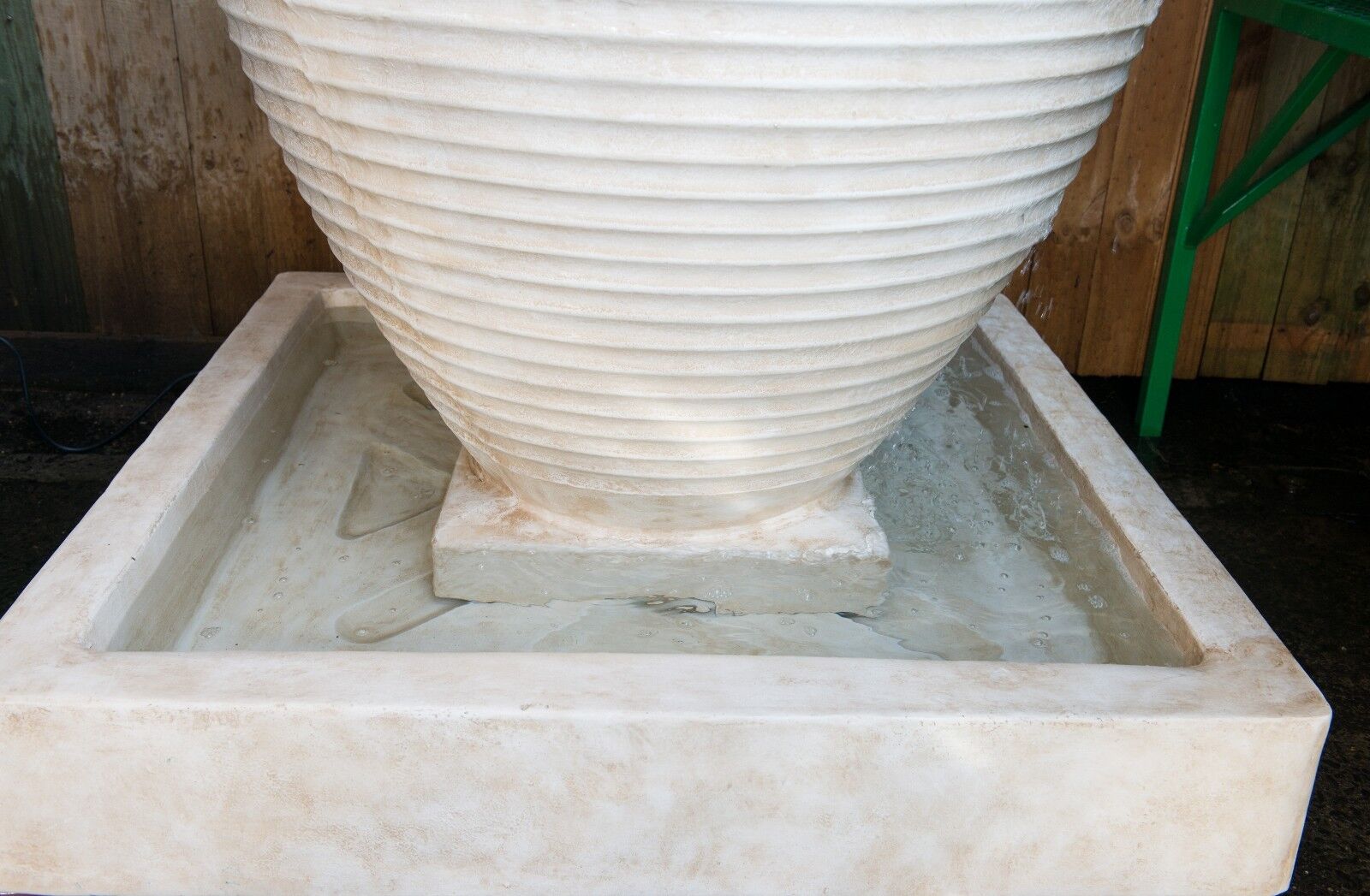
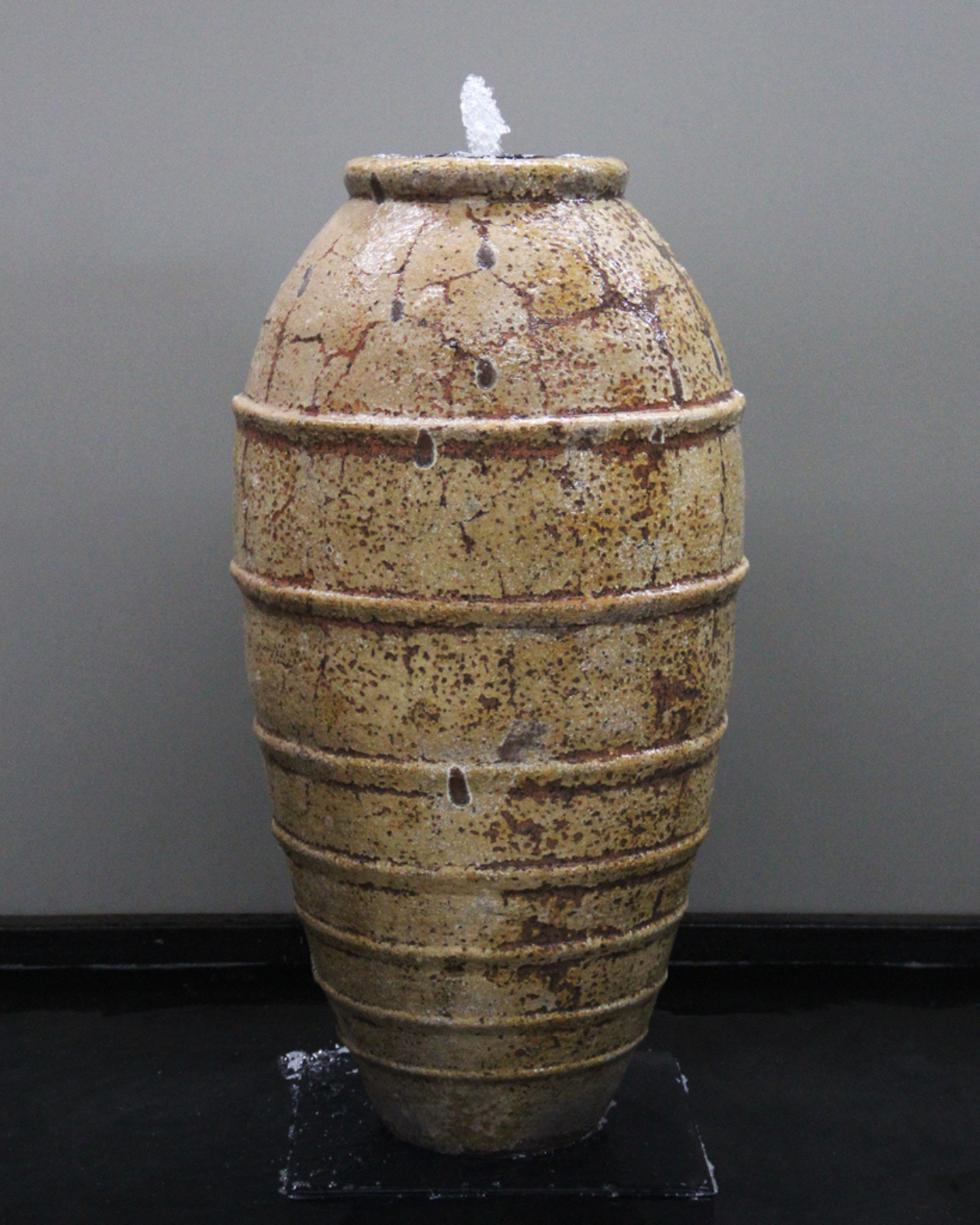

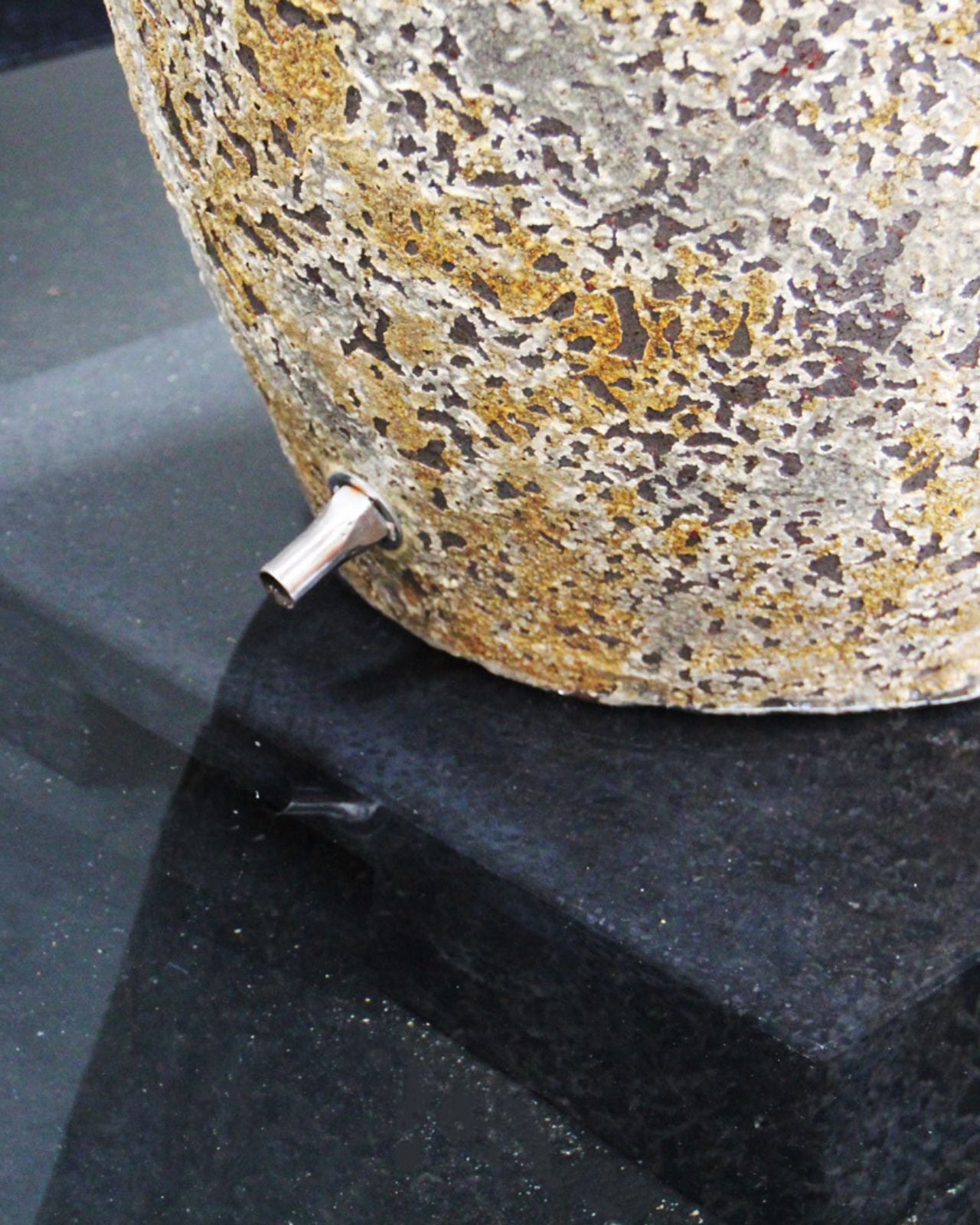
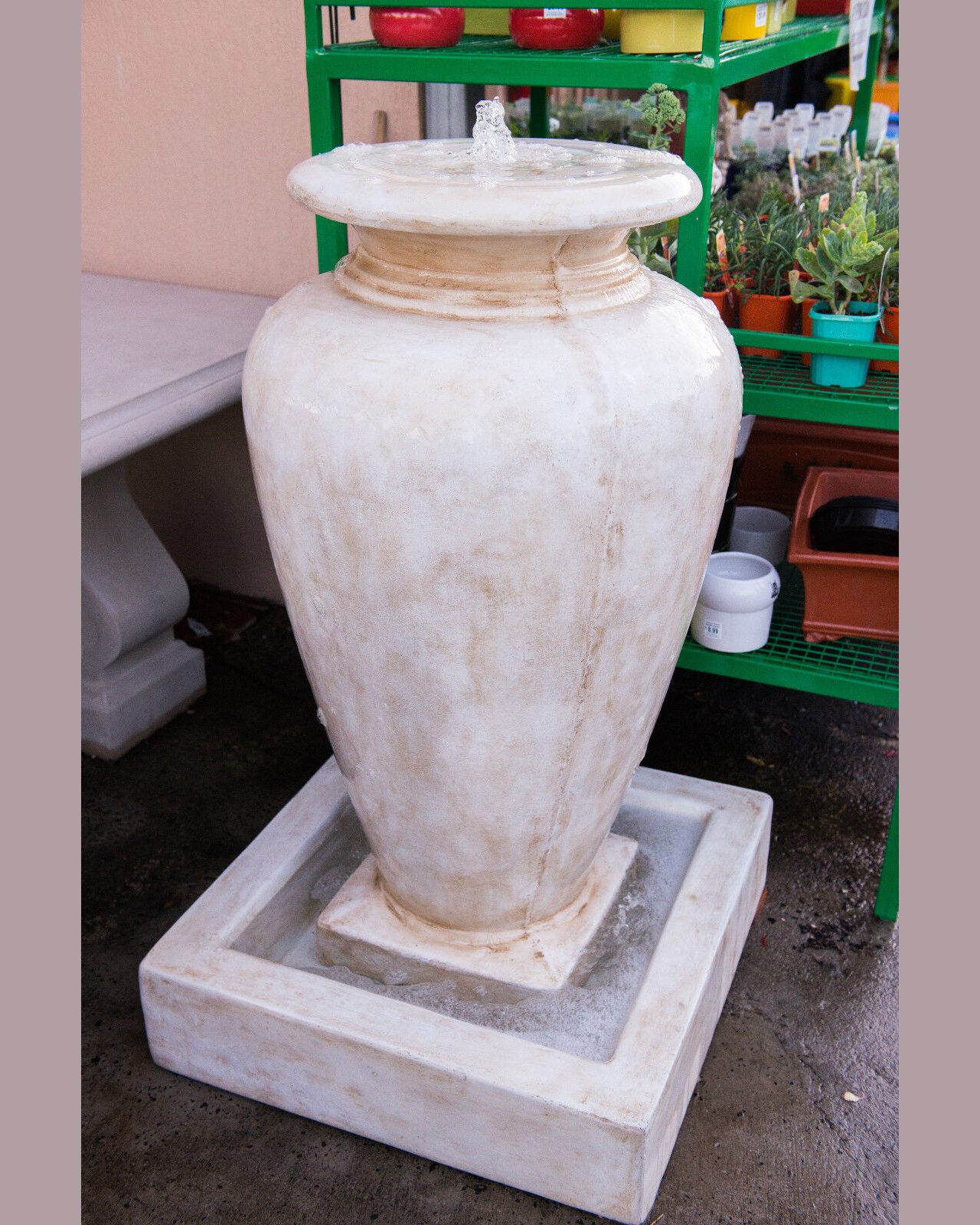

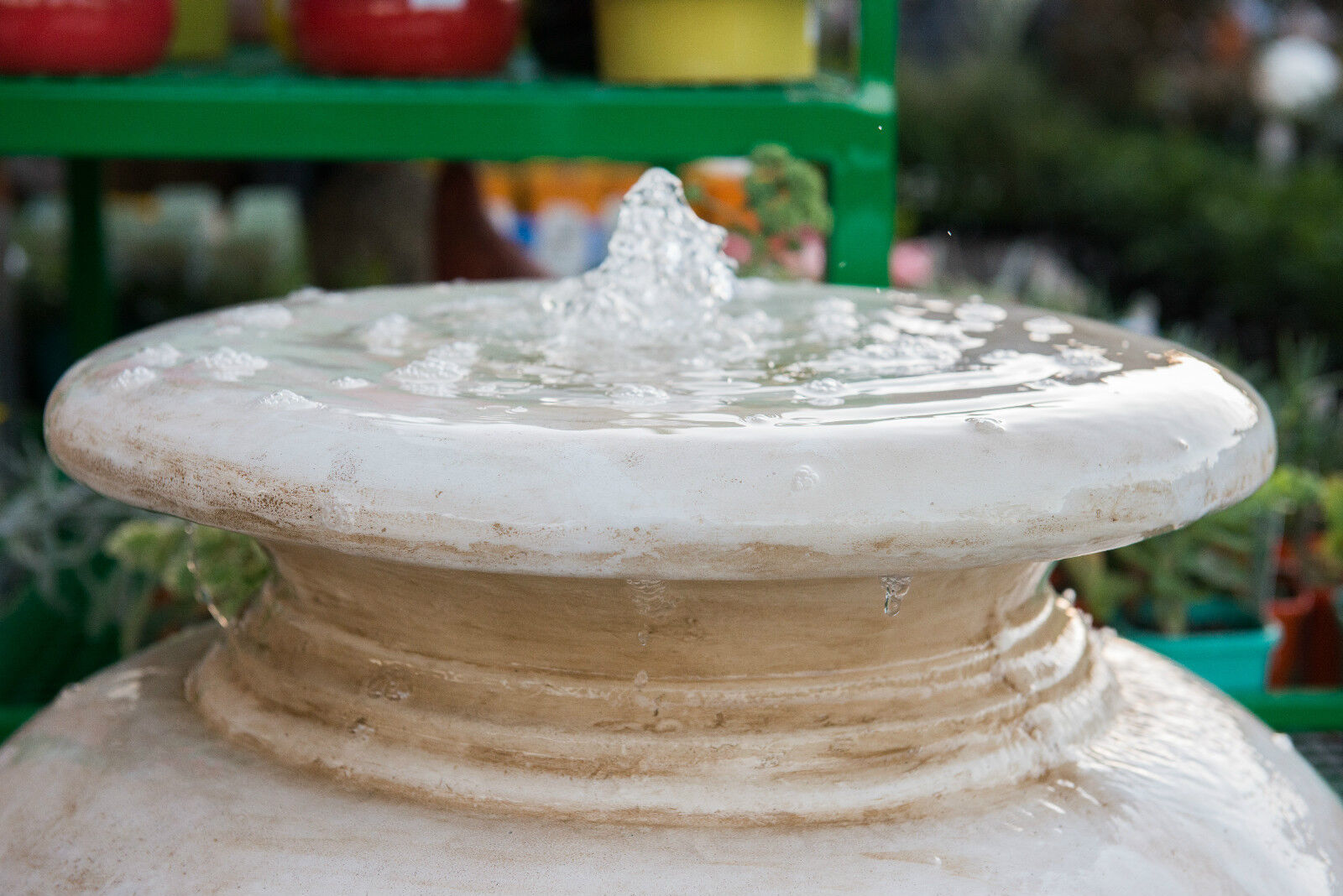
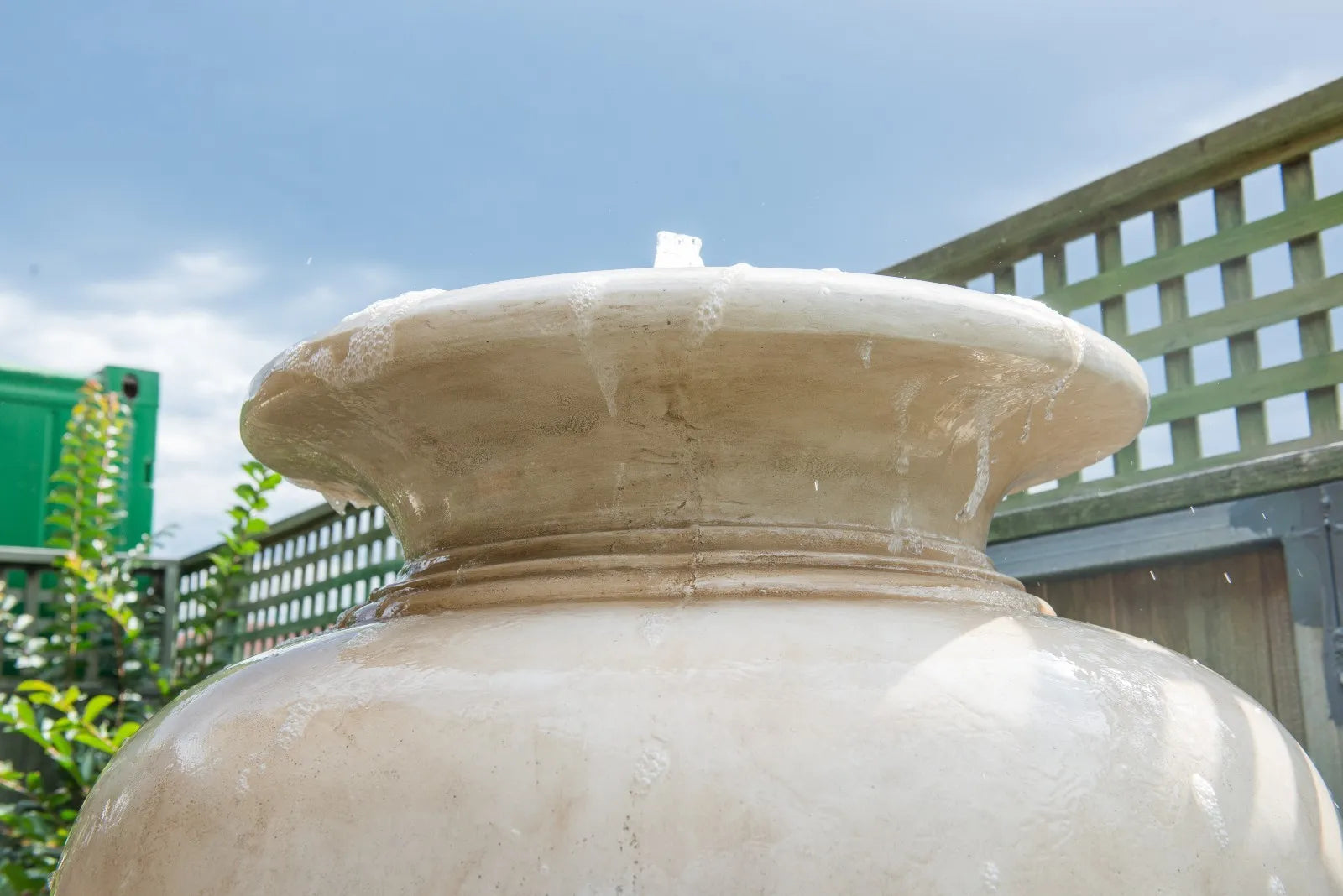
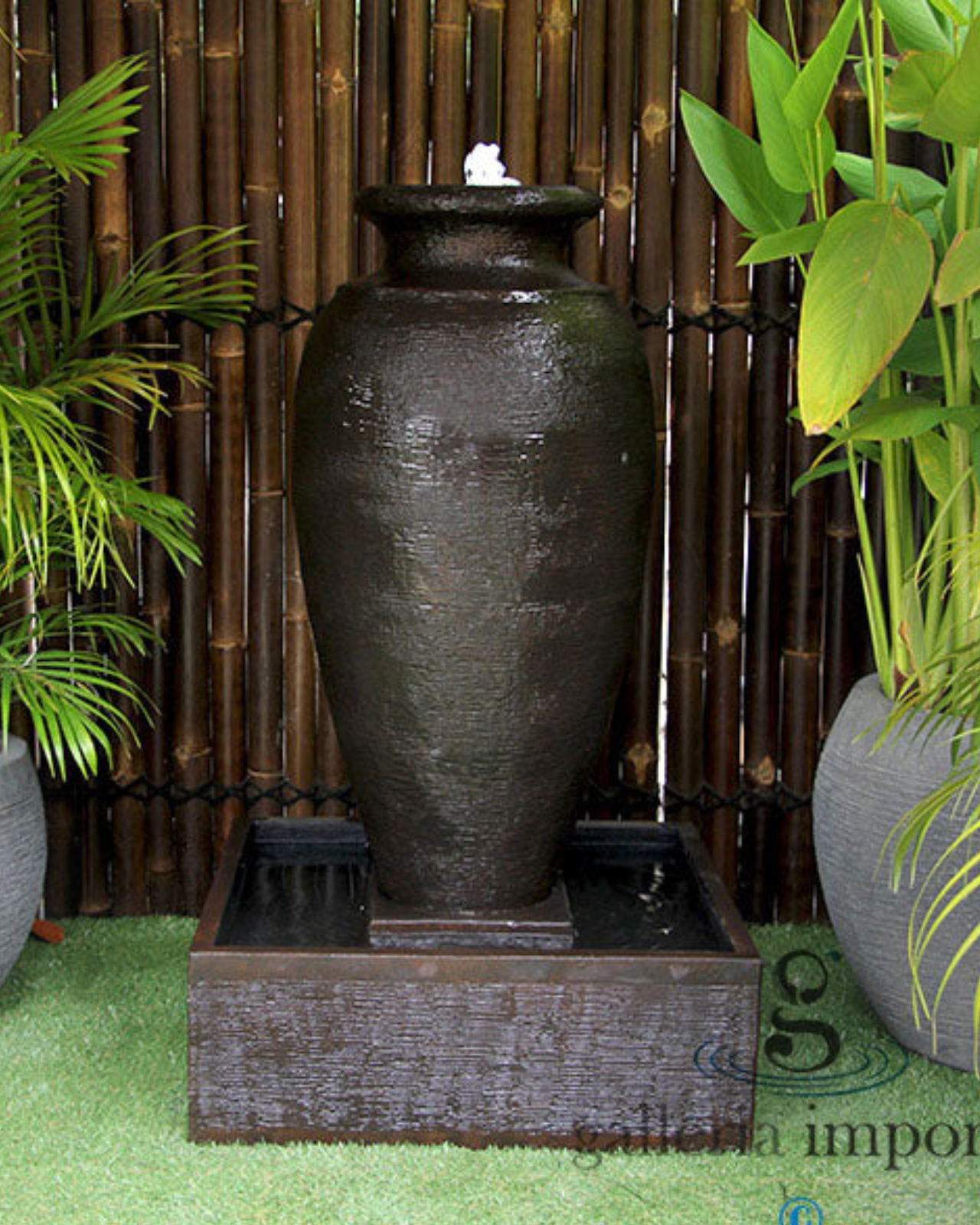

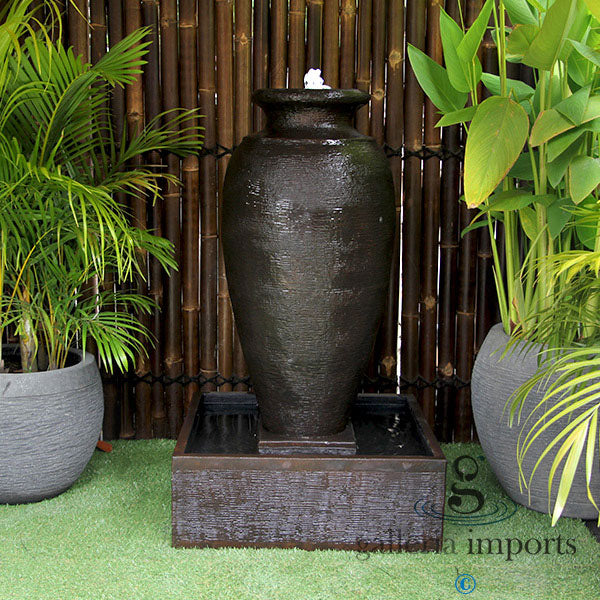
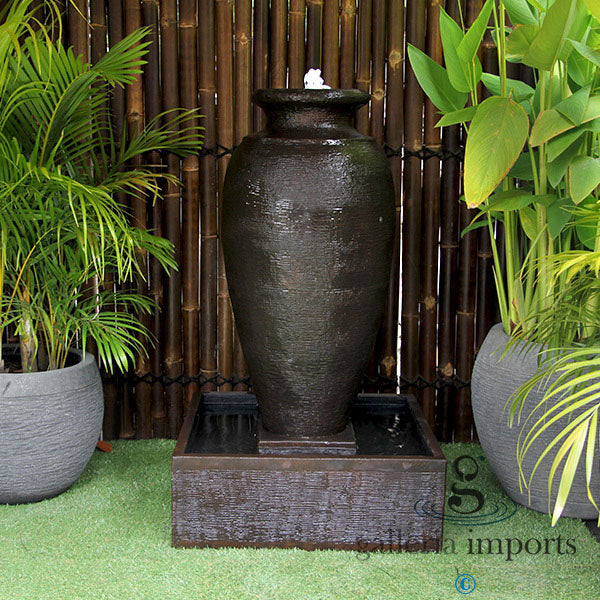
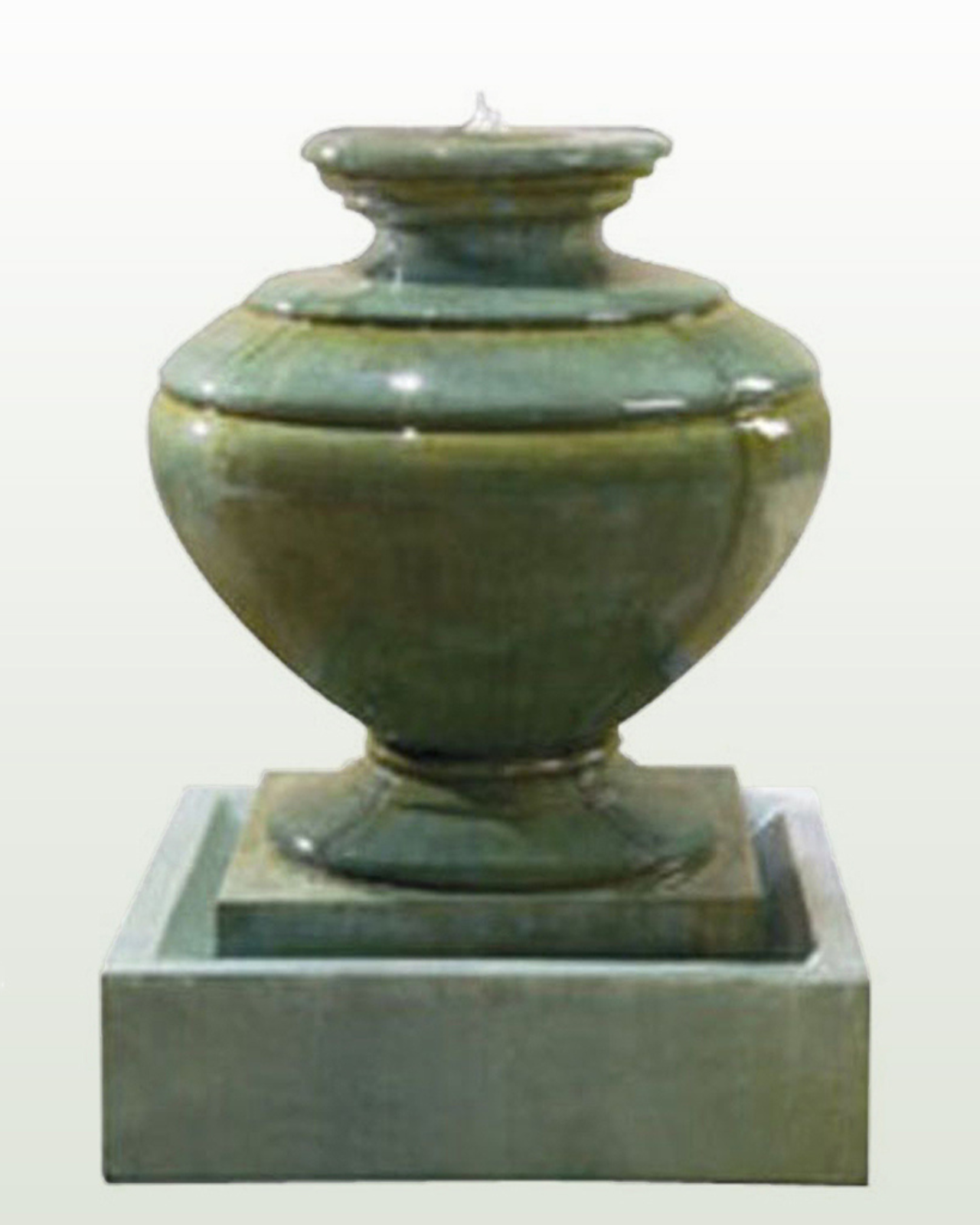
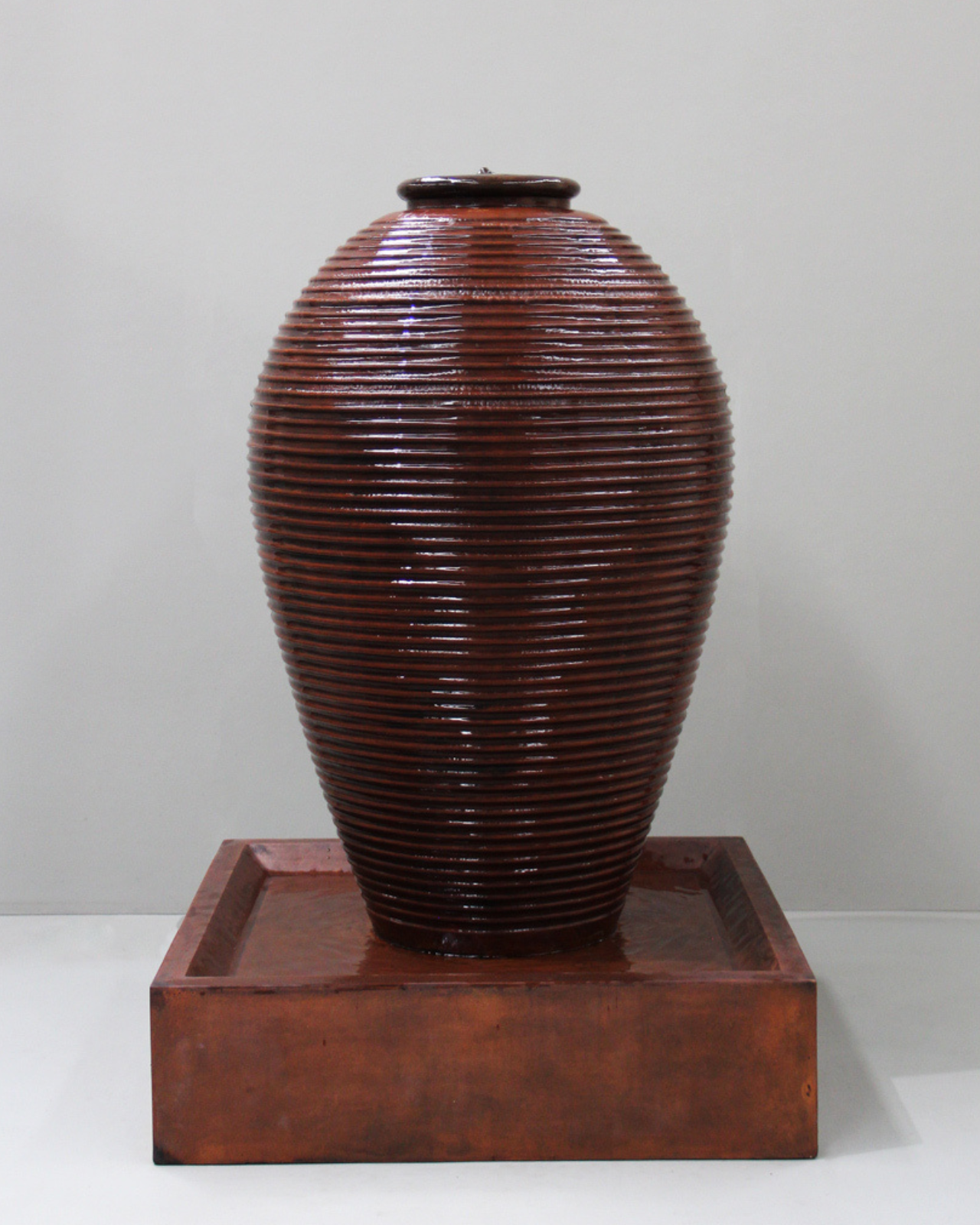
Share:
Glossary